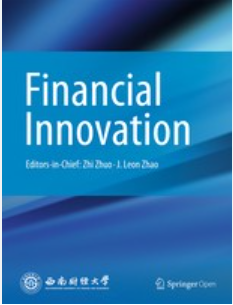Global shocks and fiscal stimulus: a tale of an oil-dependent-exporting country
IF 7.2
1区 经济学
Q1 BUSINESS, FINANCE
引用次数: 0
Abstract
Global shocks potentially distort economy’s achieved equilibria. Considering the 2020 global crude oil price shock and the 2019 coronavirus disease pandemic, this study proposes an energy and environment integrated general equilibrium model to analyze the economic, energy, and environmental effects of these global shocks on Nigeria, a developing, oil-producing, oil-dependent, and oil-exporting country. Furthermore, the mitigating roles of a fiscal stimulus–response package (palliative) are investigated and analyzed. Generally, the developed model predicts a decline in the level of economic activities. The study results are unsurprising due to Nigeria’s heavy reliance on crude oil. However, sectorial-specific impacts exist as some sectors experience output declines while others do not. Environmental quality is improved since more carbon is abated, nonetheless. Carbon intensities increased given that the price effects outweighed the quantity effects— reduced emission results from reduced economic activities and not from technological progress. The results further show a revenue-abatement paradox; a fixed carbon tax approach minimizes the tax revenue loss but may discourage carbon abatement. Conversely, the ad valorem and specific carbon tax systems encourage carbon abatement but reduce carbon tax revenues. The government’s fiscal policy stimulus–response (palliative) action dampens the impact of these global shocks on both the domestic agents and the overall economy. The results are robust and can be applied to the experiences of other developing oil-producing, oil-exporting, and oil-dependent economies.全球冲击与财政刺激:一个石油依赖出口国的故事
全球冲击可能会扭曲经济实现的均衡。考虑到 2020 年全球原油价格冲击和 2019 年冠状病毒疾病大流行,本研究提出了一个能源与环境综合一般均衡模型,以分析这些全球冲击对尼日利亚这个发展中石油生产国、石油依赖国和石油出口国的经济、能源和环境影响。此外,还调查和分析了一揽子财政刺激-应对措施(缓和措施)的缓解作用。总体而言,所建立的模型预测了经济活动水平的下降。由于尼日利亚严重依赖原油,研究结果不足为奇。然而,由于一些部门的产出下降,而另一些部门则没有,因此存在着因部门而异的影响。尽管如此,由于减少了更多的碳,环境质量还是得到了改善。由于价格效应大于数量效应,碳强度增加了--排放减少是经济活动减少的结果,而不是技术进步的结果。结果进一步显示了税收减免悖论;固定碳税的征收方法最大限度地减少了税收损失,但可能会阻碍碳减排。相反,从价碳税制和特定碳税制会鼓励碳减排,但会减少碳税收收入。政府的财政政策刺激-反应(缓和)行动抑制了这些全球冲击对国内主体和整体经济的影响。研究结果是稳健的,可应用于其他发展中石油生产国、石油出口国和石油依赖型经济体的经验。
本文章由计算机程序翻译,如有差异,请以英文原文为准。
求助全文
约1分钟内获得全文
求助全文
来源期刊

Financial Innovation
Economics, Econometrics and Finance-Finance
CiteScore
11.40
自引率
11.90%
发文量
95
审稿时长
5 weeks
期刊介绍:
Financial Innovation (FIN), a Springer OA journal sponsored by Southwestern University of Finance and Economics, serves as a global academic platform for sharing research findings in all aspects of financial innovation during the electronic business era. It facilitates interactions among researchers, policymakers, and practitioners, focusing on new financial instruments, technologies, markets, and institutions. Emphasizing emerging financial products enabled by disruptive technologies, FIN publishes high-quality academic and practical papers. The journal is peer-reviewed, indexed in SSCI, Scopus, Google Scholar, CNKI, CQVIP, and more.
 求助内容:
求助内容: 应助结果提醒方式:
应助结果提醒方式:


